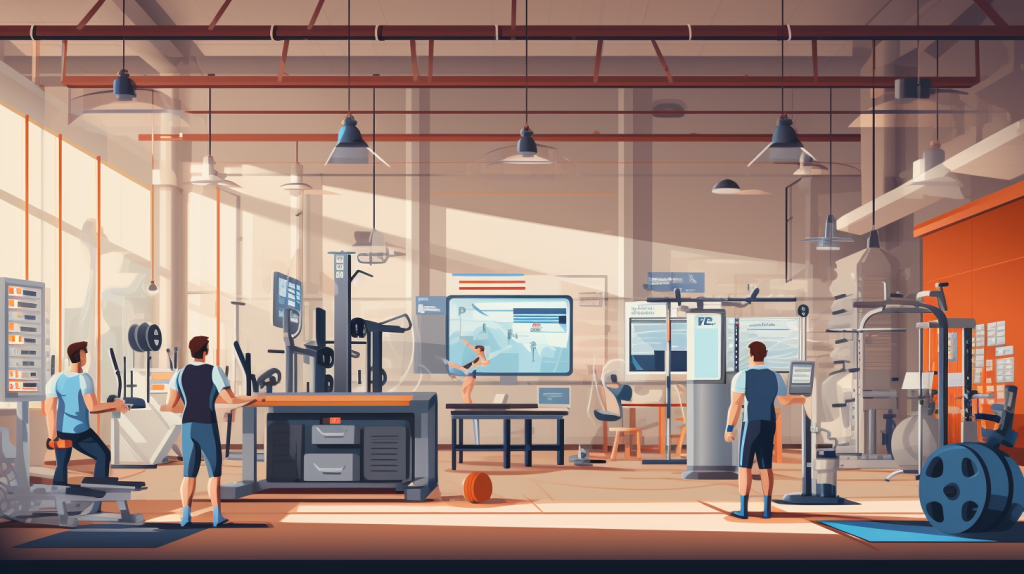Geschatte leestijd: 4 minuten
In Belgium, you can be surprised by doping controls in the gym. In Sweden, you can be taken away for a doping control if you are very muscular. Here in the Netherlands, it doesn’t seem to be that serious.
War on steroids
The whole of pumping Flanders was on its squat legs when members of bodybuilding forums reported raids in gyms. Like ‘Kazz’, who was about to leave the gym when he heard ‘stehen bleiben!’ and saw inspectors approaching him. Then he was forced to pee in a jar.
Since April 1, 2015, a renewed anti-doping legislation has been in force in the Flemish Community. According to this anti-doping legislation, both recreational and professional athletes can be subject to controls. The only requirement is that the sport is organized. This also includes membership of a gym. But Flanders has a longer history of bodybuilder prosecutions [1,2,3].
Yesterday, we could read in Le Soir that in Belgian Wallonia the anti-doping federation ONAD will soon start doping controls [7]. ONAD takes over the control tasks from WADA to also control amateurs. Fines can amount to 10,000 euros. Membership of a gym can be prohibited.
Doping
In Sweden, they can do it too. Pro Bodybuilder Tony Freeman (also known as ‘the x-man’) found out in 2010. He was in Sweden for a fitness festival. When he was doing promotional work in a local store, he was stopped and taken away by the Swedish police [4]. According to Freeman, he was denied the right to legal assistance and forced to provide urine. According to various Swedish media, he would have been found positive for the use of testosterone (no shit), growth hormone, and cannabis. However, he was released the same day without charge.
Toney was the first international pro bodybuilder to fall victim to ‘muscle profiling’.
Police staff member Henrik Blusi generalized the actions taken against Freeman to all professional bodybuilders, saying: “If you are a professional bodybuilder you should not come to Sundsvall. We are very well informed here. We are currently conducting the largest doping trial in Europe, and then one should understand that we have an eye out for these things now. [4,5]
So if you’re a black man from the US where you’re already used to racial profiling, you’ll then be arrested for your muscular appearance.
Doping control in the gym
Belgium and Sweden don’t joke about steroids. In the Netherlands, it’s not that serious yet, although there have been proposals from politicians to check gyms.
‘However, the problem mainly lies in the differently organized sport, especially at the gyms and fitness centers.’
Atsma is annoyed that amateur athletes in the Netherlands are now checked more often than recreational athletes, who, especially in strength sports, are known to be easily tempted to use anabolic steroids (muscle enhancers).
Volkskrant, 15-11-2005
However, Dutch politics were not eager to go after steroid users by checking gyms. As described earlier in an article from 2015, steroids are not of much interest to Dutch justice anyway. Especially compared to Belgians. Here, steroids are often ‘collateral damage’, for example, when looking for an XTC lab or raiding a motorcycle club.
Good thing?
What surprised me, however, was my personal reaction at the time to reports of controls in gyms in Belgium. I found it ridiculous, but I couldn’t really explain why.
After all, I am a natural bodybuilder who would rather have seen a world without anabolic steroids, growth hormone, and insulin abuse for muscle mass and less body fat. If it had never existed, the bar would never have been set so high. Then you still made an impression without looking like a cartoon character. Shouldn’t I be happy with attempts to combat the use of steroids? Shouldn’t I hope for checks in the gym so that I can pee in a jar with a smile?
In my opinion, I am just used to the current situation where recreational use of steroids is a personal choice. When it comes to bodybuilding in competition, the use is so common that cheating is hardly an issue anymore. A bit like the Armstrong argument. Belgian justice equates recreational use with competitive use, both for amateurs and pros. By also actively checking for recreational use, these checks end up more in the realm of drug enforcement than doping controls.
Maybe I compare the societal problem that steroids pose to the problems arising from (other) drug use and possession of prohibited substances. “Don’t they have anything more important to do?”. But that’s such a non-argument. The fact that there are bigger problems doesn’t mean that this ‘problem’ doesn’t deserve attention. The question is whether it’s proportional.
Hopeless?
In my opinion, these kinds of repressive measures hardly work or not at all. First of all, you can’t forbid someone to do bodybuilding like you can throw a cyclist out of the federation. Yes, you can prohibit participation in competitions and even membership of a gym. But you don’t need competitions or a gym to look like a bodybuilder. Even if you checked every gym daily, you wouldn’t prevent testosterone from moving from gyms to home gyms.
You could also go to every competition to check. See if there are more participants left than after the raid in Vlissingen when every athlete fled from inspectors. Eradicate bodybuilding as a sport and hope that muscular people disappear from the streets as a tactic. But as we recently described, many people who train for muscle mass have nothing to do with competitions. You would then also have to check all international Insta fit role models and delete accounts after a positive test. Good luck.
References
- forum.bodybuilding.nl/topics/dopingcontrole-fitness.267543/
- forum.body-fitness.nl/Dopingcontrole-in-Fitness-resultaat-m450276.aspx
- dopinglijn.be/dopingcontrole-wat-wie-hoe/dopingcontrole-wie-wanneer-waarom/wie-wordt-gecontroleerd/
- en.wikipedia.org/wiki/Toney_Freeman
- st.nu/medelpad/sundsvall/har-grips-stjarnan-misstankt-for-dopningsbrott
- volkskrant.nl/binnenland/dopingcontrole-op-sportschool-bepleit~a686780/
- plus.lesoir.be/146240/article/2018-03-19/le-kroll-du-jour-sur-les-controles-antidopage-dans-les-salles-de-sport

